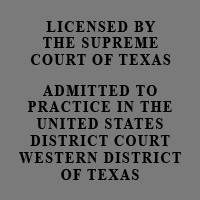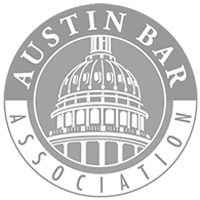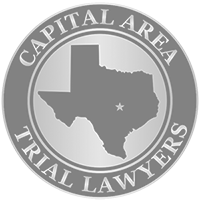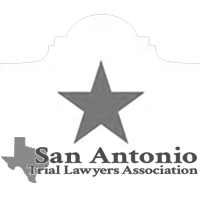Money Laundering Whistleblower Lawyer Represents Financial Professionals, Investors, and Other Individuals with Original Knowledge of Money Laudering Schemes Can Earn Large Financial Rewards by Anonymously Exposing Money Laundering Schemes, BSA Violations, and Other Illegal Conduct by Anonymous Money Laundering Whistleblower Lawyer Jason Coomer
Money laundering whistleblower lawyer, Jason Coomer, helps whistleblowers anonymously expose illegal schemes and claim rewards. More specifically, the SEC and CFTC offer large financial rewards to anonymous whistleblowers who properly expose significant illegal schemes. Further, these agencies target large banks, financial institutes, Futures Commission Merchants (FCMs), Introducing Brokers (IBs), and other financial advisers or brokers who violate money laundering laws. As a money laundering whistleblower lawyer, Jason Coomer, works with financial professionals, investors, and other money laundering whistleblowers who want to anonymously expose illegal conduct. More specifically, he represents financial professionals, auditors, bankers, and other whistleblower who want to expose violations of the Bank Secrecy Act and other anti-money laundering regulations and laws. If you have original information regarding signficant money laundering schemes including systematic or knowing violations of anti-money laundering laws, please feel free to contact money laundering whistleblower lawyer Jason Coomer via e-mail message or use our submission form.
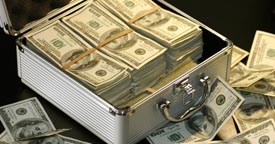
Below are some helpful FAQs regarding Anonymous Money Laundering Tips and Anonymously Reporting Money Laundering Schemes Through a Money Laundering Whistleblower Lawyer Jason Coomer:
Q1: What is Money Laundering?A1: Money laundering refers to financial transaction schemes that aim to conceal the identity, source, and destination of illicitly-obtained money. More specifically, examples of money laundering schemes often include financial institutes that receive money from corrupt foreign officials, drug pushers, and other criminal organizations. These brokers and financial institutes have obligations under the Bank Secrecy Act and other Anti-Money Laundering Laws to report suspicious activity as well as known laundering schemes.
Q2: What are the three stages of Money Laundering Schemes?A2: First, the illegal activity that garners the money places it in the hands of a launderer. Second, the launderer passes the money through a complex scheme of transactions to obscure who initially received the money from the criminal enterprise. Third, the scheme returns the money to the launderer in an obscure and indirect way.
Q3: How can a Money Laundering Scheme Whistleblower anonymously report an illegal scheme and receive a financial reward?A3: Yes, the Securities Exchange Commission SEC and Commodity Futures Trading Commission allow money laundering whistleblowers to file anonymous money laundering scheme tips through a lawyer. This whistleblower protection to file money laundering tips anonymously through a lawyer protects the whistleblower's identity and sometimes their career.
Q4: How much can an Anonymous Money Laundering Whistleblower earn?A4: The Securities Exchange Commission (SEC) and Commodity Futures Trading Commission (CFTC) offer large financial rewards from 10% to 30% of the money collected by the agency as a result of the tip. Thus, large money laundering schemes through financial institutes and brokers can result in large rewards. For example a fine of $100 million by either agency can earn from $10 million to $30 million depending on the quality of the tip and cooperation.
Money Laundering Whistleblower Lawyer Works With Anonymous Whistleblowers to Claim Large Financial Rewards
Through anonymous CFTC and SEC Whistleblower Reward Tips, the CFTC and SEC award large financial rewards to anonymous whistleblowers. These reward range between ten percent and thirty percent of the money collected from the tips to a qualified whistleblower. The recovery, however, must exceed $1,000,000.00. Thus, an agency enforcement action that results in the recovery of a $100,000,000.00 fine by either agency can award the anonymous whistleblower between $10,000,000.00 and $30,000,000.00 depending on the value of the anonymous tip. To qualify for a reward, anonymous CFTC whistleblowers and SEC whistleblowers must report their money laundering tips based on original information and must report the tip voluntarily. Further, the whistleblower must be a natural person or natural persons. In other words, companies or other entities cannot claim rewards through either the SEC or CFTC programs. A money laundering whistleblower lawyer can assist you with the details regarding exposing money laundering.
The Basics of Money Laundering Schemes and Anti-Money Laundering AML Laws
Money laundering refers to financial transaction schemes that conceal the identity, source, and destination of illicitly-obtained money. The money laundering process can be broken down into three stages. First, the illegal activity that garners the money places it in the hands of a launderer. Second, the launderer passes the money through a complex scheme of transactions to obscure who initially received the money from the criminal enterprise. Third, the scheme returns the money to the launderer in an obscure and indirect way. To prevent money laundering several laws have been put in place to detect and prevent money laundering. When financial institutions, large corporations, and brokers or dealers violate these Anti-Money Laundering laws, they can often be held liable for allowing or encouraging money laundering.
Additionally, the Illicit Cash Act targets money laundering schemes and seeks to expand whistleblower rewards to expose different types of money laundering schemes. In June 2020, this bipartisan legislation has not yet been signed into law, but it is expected to expand detection of money laundering scheme and rewards to money laundering whistleblowers. This legislation intends to help protect the United States from terrorism by reducing the amount of illegal money laundering schemes available to terrorists.
Money Laundering Whistleblower Lawyer Helps Whistleblower Use Whistleblower Protections to Conceal Their Identity
In an effort to expose illegal conduct and encourage persons with knowledge of significant money laundering schemes to report illegal schemes, both agencies offer the ability to report money laundering schemes anonymously. These Whistleblower Protections encourage financial professionals and other people with specific knowledge of illegal schemes to expose hard to detect money laundering schemes. More specifically, the agencies want high end tips from financial services professionals, bank employees, brokers, high end investors, and other high functioning people. These laws allow these whistleblowers to protect their identity by remaining anonymous. All communications with the agencies are made through a lawyer. The lawyer confidentially reviews the scheme and works with the whistleblower to prepare a disclosure to one or both agencies that explains the money laundering scheme, but also conceals the whistleblower's identity. These Whistleblower protections allow bank employees and other high functioning individuals to expose illegal conduct and collect financial rewards through a lawyer licenesed in the United States.
The Bank Secrecy Act and Required Anti-Money Laundering Programs for Financial Institutions
The Bank Secrecy Act (BSA) (31 USC 5318(h)) requires financial institutions to establish Anti-Money Laundering (AML Programs). FCMs are defined as financial institutions in the BSA. IBs have been interpreted by FinCEN to fit within the term "brokers or dealers in commodities" in the financial institution definition and thus also must establish AML Programs. At a minimum, an AML Program must be in writing and must include: 1. Development and maintenance of written policies and procedures, and supervisory controls; 2. Reasonably designed to ensure compliance with the BSA and assist a firm in detecting and reporting suspicious activity; 3. Designation of a compliance officer; 4. Education and ongoing employee training of appropriate personnel; and 5. Independent review to monitor and ensure AML program is adequately functioning.
The Bank Secrecy Act Requires FCMs and IBs to Report Suspicious Activity and Known Money Laundering Schemes
The Bank Secrecy Act requires Futures Commission Merchants (“FCMs”) and Introducing Brokers (“IBs”) to comply with several anti-money laundering laws. More specifically, the Act requires FCMs and IBs to maintain and implement a written anti-money laundering (AML) policy. Further, FCMs and IBs need a written customer identification program (“CIP”). Both types of professionals also should file suspicious activity reports (“SARs”) and currency transaction reports (“CTRs”). Violations of these requirements can be the basis of Bounty Actions.
Anonymous CFTC Money Laundering Tips Offer Large Financial Rewards for Exposing Laundered Money in the Financial Markets
CFTC Anti-Money Laundering Whistleblower Rewards encourage individuals with original knowledge of Future Commission Merchants or Introducing Brokers violating the BSA to report the violations. Further, these anonymous whistleblower reward tips offer large financial rewards to individuals who report significant illegal schemes including systematic failures to file suspicous activity reports SARs and knowingly trading laundered money.
Improper Anti-Money Laundering Supervision and Records Can Result in Fines and Money Laundering Whistleblower Rewards
The CFTC is seeking anonymous money laundering tips involving several specific schemes and violations. More specifically, targeted violations include improper supervision and records violations. The agency also wants whistleblower to report violations related to failures to diligently supervise officers’, employees’, and agents’ opening and handling of accounts. The agency also seek help detecting other types of significant fraud and corruption in the markets. These cases include bribes to foreign officials and other violations of the Foreign Corrupt Practices Act.
The CFTC Uses Anonymous Money Laundering Tips to Expand Enforcement Efforts into Corporate Failures to Implement Compliance Programs
The CFTC also targets other Bank Secrecy Act violations including improper enforcement of trading limits assigned by regulators and inadequate CIPs. Additionally, the agency wants to know about FCMs and IBs who fail to properly file required suspicous activity reports SARs. The CFTC Is Expanding Its Enforcement Efforts to Detect Corporate Compliance in Preventing Money Laundering The CFTC is expanding its enforcement efforts into corporate failures to properly implement compliance programs. More specifically, through anonymous money laundering tips, the CFTC wants to regulate hard to detect illegal conduct.
The SEC also targets banks, financial institutes, and other large corporations that fail to properly implement compliance programs. The SEC also targets publicly held corporations and some private equity firms that knowlingly violate Anti-Money Laundering Laws.
Anti-Money Laundering Program Requirements
The National Futures Association (NFA) adopted Rule 2-9(c) and an accompanying Interpretive Notice that sets forth AML Program requirements applicable to its FCM and IB members. The importance of strong BSA/AML compliance was highlighted in a FinCEN advisory, issued on August 11, 2014, on promoting a culture of compliance issued by financial institutions. The advisory did not change any existing expectations or obligations under BSA/AML requirements, and highlights the importance of strong compliance for senior management, leadership and owners of all financial institutions subject to FinCEN's regulations.
Money Laundering Whistleblower Lawyer Helps Financial Professionals Expose Futures Commission Merchants FCMs, Introducing Brokers IBs, Financial Institutes, Brokers, Financial Advisers, and Other Financial Firms Who Violate Anti-Money Laundering Laws
Both the SEC and CFTC offer large rewards to anonymous whistleblowers who expose money laundering schemes committed by financial firms. More specifically, the SEC regulates numerous financial institutes, banks, financial advisers, and brokers who are prohibited from money laundering. Additionally, the CFTC regulates Futures Commission Merchants FCMs, Introducting Brokers, and other financial professionals who trade in the financial markets. When these financial firms illegally violate money laundering laws including knowingly circumventing mandatory reporting requirements, these intentional violations can trigger large fines including whistleblower rewards. Further, intentional and systematic avoidance of filing mandatory suspicous activity reports or violating Anti-Money Laundering Programs, can result in significant fines.
Publicly Help Corporations That Knowlingly Violate Anti-Money Laundering Laws and Fail to Enforce or Have Proper Anti-Money Laundering Laws Can Be Fined For Knowing and Systematic Violations
False or misleading statements made by a publicly held company can be violations of securities law. More specifically, large corporations that file false or misleading SEC reports regarding known and significant money laundering schemes violate securities law. These violations can be the basis of large fines and large rewards to anonymous whistleblowers. Thus, anonymous money laundering scheme whistleblowers can earn large financial rewards by exposing large publicly held corporations that violate money laundering laws. These whistleblowers can anonymously expose these corporations through a lawyer and earn substantial rewards. Financial professionals and corporate insiders with original information of corprate accounting fraud are encouraged to anonymously report this illegal conduct.
The SEC Rewards Anonymous Money Laundering Whistleblowers Who Expose Illegal Conduct By Private Equity Firms
Private equity firms commonly buy and sell portfolio companies. Further, these transactions require thorough investigations and accurate information including revenues, liabilities, and net values. Fraudulent accounting and inflated or deflated valuations during investor funding rounds or other transactions can defraud investors out of many millions or billions of dollars. As such, the SEC targets parties including private equity firms who defraud investors, companies, or other private equity firms. More specifically, the SEC targets private equity firms that take control positions in portfolio companies and conceal fraud by these companies.
The SEC Rewards Whistleblowers Who Anonymously Expose Investment Advisers Laundering Money Through Financial Markets
The SEC also encourages anonymous private equity whistleblowers to expose investment advisers who use laundered money to trade in the financial markets. More specifically, the SEC pays large rewards to whistleblowers who report investment advisers who violate Anti-Money Laundering laws and securities laws. Further, where investment advisers systematically work with money launders to launder money through the financial markets, the SEC wants to know so they can protect investors.
Foreign Officials and Other International Criminals Often Attempt to Launder Money Through Banks in The United States or Financial Institutes That Trade in US Financial Markets
International criminals often want to invest their money in the United States. More specifically, these foreign officials who accept bribes and other internations criminals want to invest their money in safe financial markets. Financial professionals who help these international criminals launder their money in the United States, can often be held accountable under Anti-Money Laundering Laws. For this reason, anonymous whistleblowers are excouraged to expose these international money laundering schemes. Further, whistleblowers are also encouraged to expose internations corporations that pay illegal kickbacks and bribes to government officials and former government officials in exchange for contracts including large building projects. These corporations also can often be brought to justice and made to pay large penalties under the Foreign Corrupt Practices Act. More specifically, anonymous whistleblowers who bring these corporations to justice may be able to collect large economic rewards under the Securities Exchange Act (SEC Whistleblower Rewards), the Commodity Exchange Act (CFTC Whisteblower Rewards), and International Whistleblower Rewards.
Anymous Illegal Bribe Whistleblowers may be entitled to not only the amount of the illegal bribe or kickback, but the benefit of the illegal bribe or kickback. In cases where $100,000.00 bribe is made to obtain a $100 million building project, the Illegal Bribe Whistleblower or Illegal Kickback Whistleblower may be entitled to 10 to 30% of the $100,000,000.00 and the $100,000.00 translating into a $10 million to $30 million award.
Anonymous Money Laundering Whistleblower Lawyer Works With Whistleblowers and Other Lawyers to Anonymously Expose Money Laundering Schemes and Collect Financial Rewards
As a money laundering whistleblower lawyer, Jason Coomer commonly works with anonymous whistleblowers to expose signficant money laundering schemes. Further, he commonly works with other money laundering scheme whistleblower lawyers to handle large whistleblower reward cases. He also works on Medicare Fraud Whistleblower Lawsuits , Defense Contractor Fraud Whistleblower Lawsuits, Stimulus Fraud Whistleblower Lawsuits, Government Contractor Fraud Whistleblower Lawsuits, and other government fraud whistleblower lawsuits.
If you are the original source with special knowledge of fraud and are interested in learning more about a money laundering whistleblower lawsuit, please feel free to contact anonymous money laundering whistleblower lawyer Jason Coomer via e-mail message.
Feel Free to Contact Us with any Questions
Associations
